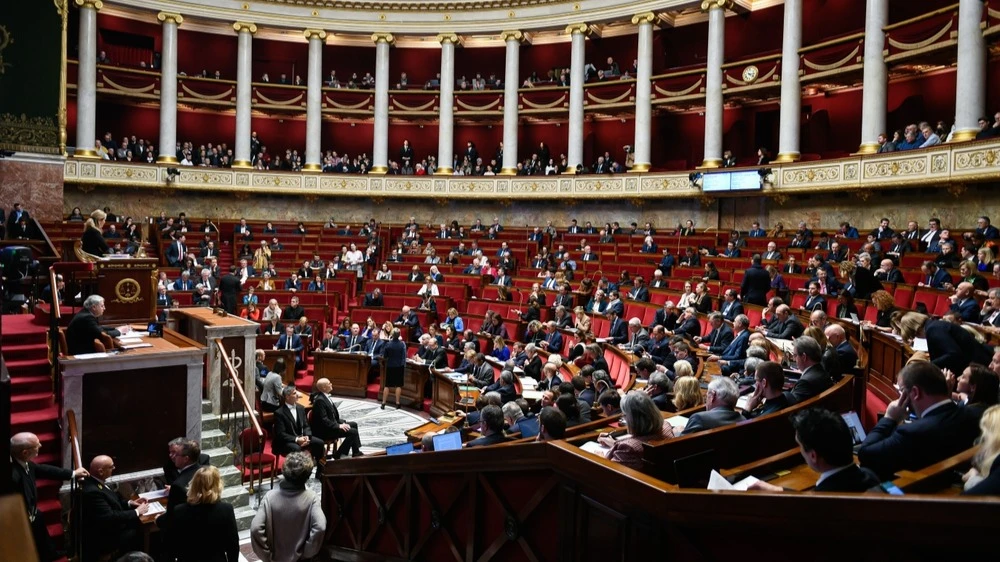French prime minister to resign after confidence vote fails

France's National Assembly has voted no confidence in the government. The vote was organized by Prime Minister François Bayrou, trying to win support for his unpopular budget plan. Now he will have to leave the post, which he took up only at the end of last year.
Details
The lower house of the French parliament announced a vote of no confidence in Prime Minister François Bayre, appointed to his post just nine months ago, Bloomberg reports. Distrust of Bayre was expressed by an overwhelming majority of deputies: 364 votes "against", while only 194 deputies voted in favor of the Prime Minister.
Bayrou himself initiated the vote, hoping to force lawmakers to back his budget plan, he explained to Bloomberg before the vote. France is "drowning in a debt abyss," he told lawmakers on Monday before the vote. "You have the power to overthrow the government, but you don't have the power to erase reality," the politician added.
The prime minister has proposed a plan to reduce France's budget deficit to 4.6% of GDP by 2026, against an expected 5.4% this year. France now has the highest deficit in the eurozone: the debt is growing by about 5,000 euros per second, and its servicing, according to government calculations, will cost 75 billion euros next year. Bayrou's program involved spending cuts and tax hikes worth 44 billion euros. This included a proposal to cancel two public holidays. However, the initiative did not play in favor of Bayrou: opposition parties in the National Assembly united against the minority government.
What's next
The fall of the Bayrou government threatens France with a new wave of political instability and increases doubts about whether it will be possible to cope with the largest deficit in the eurozone, Bloomberg writes. In addition, this is the second consecutive resignation of the French prime minister in less than a year: Bayrou's predecessor Michel Barnier was able to hold the post for only 90 days. This scenario only emphasizes the weakness of President Emmanuel Macron's position after he dissolved the lower house last year and called early elections, as a result of which the National Assembly was split into three opposing blocs.
Now Macron, as last time, has two choices: appoint a new prime minister or dissolve the lower house and call early elections. According to Bloomberg sources, the president rather intends to agree with the parties in the National Assembly on the candidacy of a new prime minister. However, the decision will have to be made without delay: France must have a government by September 18, when a major labor union strike against spending cuts is expected, the sources added.
Macron has not yet made any public statements about what he intends to do next. Appointing a prime minister in France is the exclusive right of the president, and there is no constitutional timeframe for this. For example, after the 2024 election, Macron searched for a candidate for two months before putting Michel Barnier at the head of the government, and after his resignation he appointed Bayrou a week later. The new prime minister, in turn, must present the composition of the cabinet, which is approved by the president. But choosing a candidate won't be easy: according to Bloomberg sources, Macron's ideal choice is someone who manages to keep the centrists in line while cooperating with the Socialists to pass laws. Theoretically, Macron could dissolve the National Assembly again, but new elections risk weakening his position even further - as already happened after last year's early elections.
How the markets reacted
At the end of trading on September 8, France's CAC 40 index rose almost 0.8%, but the results of the vote were announced after markets closed. Since June 2024, when Macron unexpectedly announced early elections and drove the country into a political deadlock, this benchmark has lost 4.1%. By comparison, the pan-European Stoxx Europe 600 has gained 4.9% in that time and Germany's DAX is up 24%. Nevertheless, by the end of last week the markets calmed down a bit after reports that Macron is not planning new parliamentary elections. The yield on French 10-year bonds relative to German bunds, a key indicator of risk, fell by about 1 basis point to 78, whereas even before Bayrou's vote of confidence announcement, the spread had been hovering around 70.
This article was AI-translated and verified by a human editor
